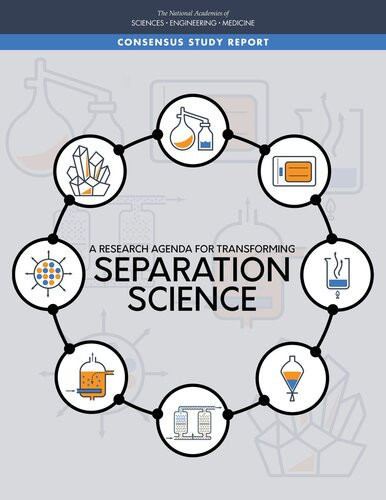

Most ebook files are in PDF format, so you can easily read them using various software such as Foxit Reader or directly on the Google Chrome browser.
Some ebook files are released by publishers in other formats such as .awz, .mobi, .epub, .fb2, etc. You may need to install specific software to read these formats on mobile/PC, such as Calibre.
Please read the tutorial at this link: https://ebookbell.com/faq
We offer FREE conversion to the popular formats you request; however, this may take some time. Therefore, right after payment, please email us, and we will try to provide the service as quickly as possible.
For some exceptional file formats or broken links (if any), please refrain from opening any disputes. Instead, email us first, and we will try to assist within a maximum of 6 hours.
EbookBell Team

5.0
90 reviewsSeparation science plays a critical role in maintaining our standard of living and quality of life. Many industrial processes and general necessities such as chemicals, medicines, clean water, safe food, and energy sources rely on chemical separations. However, the process of chemical separations is often overlooked during product development and this has led to inefficiency, unnecessary waste, and lack of consensus among chemists and engineers. A reevaluation of system design, establishment of standards, and an increased focus on the advancement of separation science are imperative in supporting increased efficiency, continued U.S. manufacturing competitiveness, and public welfare.
A Research Agenda for Transforming Separation Science explores developments in the industry since the 1987 National Academies report, Separation and Purification: Critical Needs and Opportunities. Many needs stated in the original report remain today, in addition to a variety of new challenges due to improved detection limits, advances in medicine, and a recent emphasis on sustainability and environmental stewardship. This report examines emerging chemical separation technologies, relevant developments in intersecting disciplines, and gaps in existing research, and provides recommendations for the application of improved separation science technologies and processes. This research serves as a foundation for transforming separation science, which could reduce global energy use, improve human and environmental health, and advance more efficient practices in various industries.